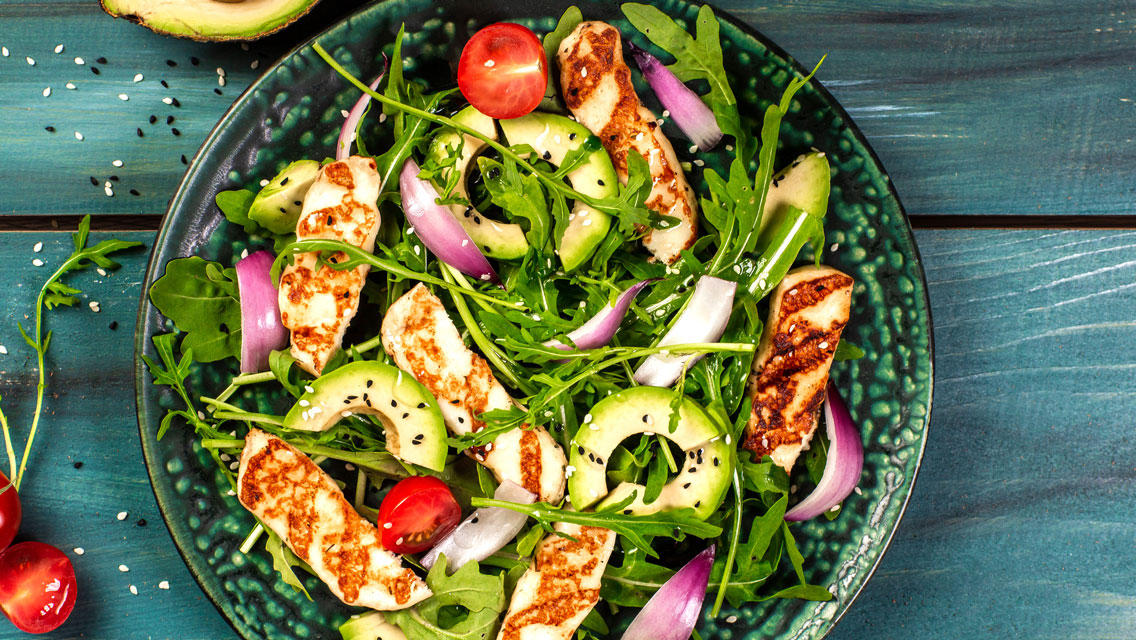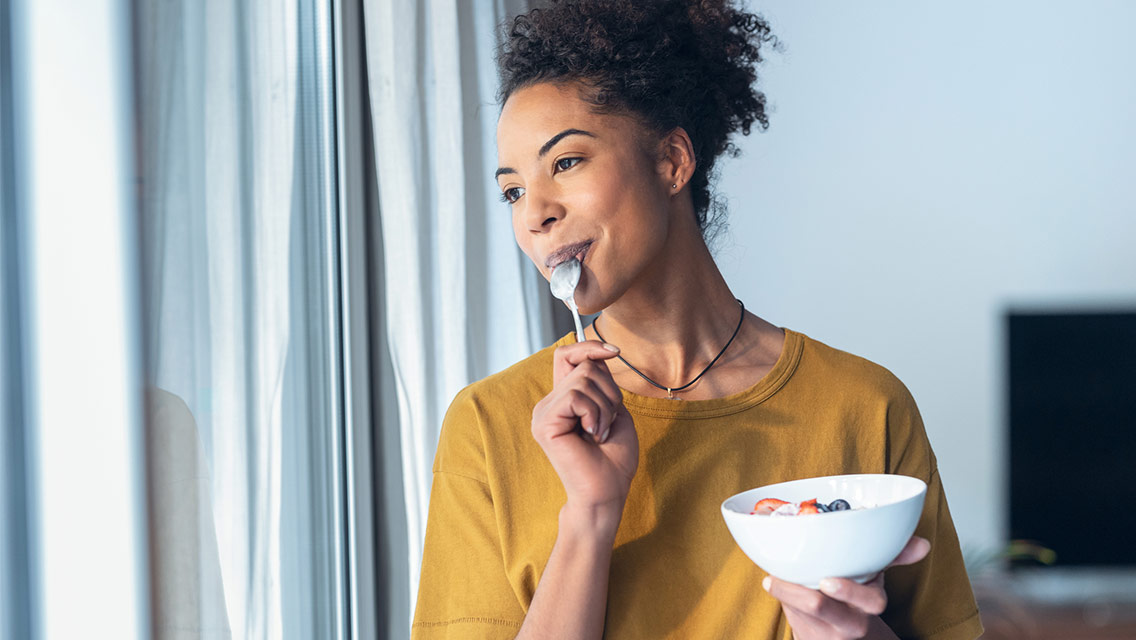It was more than a decade ago, before the obesity epidemic had even peaked, that nutritionists Evelyn Tribole, MS, RD, and Elyse Resch, MS, RD, FADA, noticed the stream of failed dieters traipsing through their offices, many of them desperate for help.
Aware that dieting pitfalls — from ravenous hunger to outright boredom — might be part of the problem, the nutritionists gave their clients permission to indulge some cravings, but nonetheless kept them on programs that limited food intake. Eager to please, the clients followed the meal plans and initially lost weight.
But, Tribole recalls, “sometime later we started getting calls from some of these people telling us how much they needed us again. They couldn’t stick to the plan anymore. Maybe they needed someone to monitor them. Maybe they didn’t have enough self-control. Maybe they weren’t any good at this, and definitely, they felt guilty and demoralized.”
Looking around, the two nutritionists saw the writing on the wall — and in the medical journals, too: Something like 95 percent of dieters fail to stick with their weight-loss programs, from Weight Watchers to Atkins to Jenny Craig.
Determined to find a different approach, they first looked to the anti-diet movement, which was just then burgeoning as a backlash to the war against obesity.
“The anti-diet movement proposed a way of eating that allowed for any and all food choices, without regard for nutrition,” Tribole explains. It was a philosophy at loggerheads with literature linking excess pounds to cancer, heart disease, diabetes and more — and it ran counter to Tribole’s and Resch’s own instincts.
“Our initial reactions were highly skeptical,” says Tribole. “How could we, as nutritionists, trained to look at the connections between nutrition and health, sanction a way of eating that seemed to reject the very foundation of our knowledge and philosophy?”
What Is Intuitive Eating?
Eventually, Tribole and Resch determined that they could resolve the conflict by hammering out a compromise of sorts. They called it “Intuitive Eating” — a nutritional strategy that rejected dieting in favor of psychological awareness. In particular, it emphasized the importance of increasing clients’ sensitivity to internal signals of hunger and fullness and helping them develop a greater attunement to the physiological effects of the foods they ate.
Described in their influential book, Intuitive Eating: A Revolutionary Program That Works, the system taught users to distinguish between physical hunger and emotional need, and to trust that natural urges would deliver better health and balance than any diet could.
The concepts were controversial. Clients in Tribole and Resch’s intuitive eating program were free to eat as much as they wanted and to indulge their cravings for food. While diets were all about restriction — calorie counting, weigh-ins, denial of pleasure — intuitive eating gave permission to eat anything. A slice of cake? A pizza party? It was all allowed.
But can a system so permissive really keep weight down? To some extent, the jury is still out. Expert opinion has been mixed. Intuitive eating clearly doesn’t work for everyone. Yet, thousands of people report losing weight based on intuitive eating, and in recent years, peer-reviewed studies have supported the claims.
Not only did intuitive eaters in recent studies have lower cholesterol, less diabetes, healthier hearts, better levels of fitness, and lower body mass index (BMI), they achieved all that without the psychological stress and self-loathing that dieting can bring on.
According to Tracy Tylka, PhD, a psychologist at Ohio State University whose research has lent rigor to the field, the women participating in her intuitive-eating study were “more likely to reject the societal stereotype that thinness is their ideal body type” and were “less likely to base their self-worth on being thin.”
These positive results make sense in light of evidence that dietary restrictions disrupt homeostasis, a series of metabolic feedback loops between the gut, liver, brain and the body’s cells that help to maintain internal equilibrium. Intuitive eating has a shot at succeeding where restrictive diets fail, say proponents, because it complements rather than fights the complex biology of hunger. It does so by building conscious awareness of hunger cues honed by evolution over millions of years.
The Science Behind Intuitive Eating
Until recently, evidence that intuitive eating promoted weight loss was largely testimonial, but a group of studies published in the last few years has lent more credence to the claims.
Especially influential is research from Tylka. Before investigating intuitive eating, Tylka specialized in people with eating disorders, focusing on those who fell along the spectrum of disordered eating without being symptomatic enough to actually be diagnosed. Some 40 percent of Americans qualified for this broader category, she found.
As a group, these people were often unhappy, obsessed with their weight and suffering from body-image problems, whether they were overweight or not.
Those who didn’t fall on the spectrum, she discovered, seemed to be intuitive eaters whose habits resembled those of the people Tribole and Resch had described in their book.
“Attending to physiological signals of hunger and satiety are uniquely connected to well-being, and to lower body mass.”
By 2006, Tylka had laid the scientific basis for researching the eating style. She created a scale that defined and then measured the traits of intuitive eaters: Those who qualified could be defined by 21 traits in three broad categories, including unconditional permission to eat, eating from physical rather than emotional cues, and relying on internal hunger and satiety cues.
Tylka used her scale to study more than 1,400 people, determining that intuitive eaters have a higher sense of well-being and lower body weight and do not seem to internalize the “thin ideal.” Later research on 1,260 college women found intuitive eaters shared a series of empowering traits: They were optimistic and resilient, skilled at social problem solving, and had good self-esteem.
A study Tylka published in 2010 showed that parental pressure to restrict eating in childhood translated to higher BMI in adults. The pressure backfired by disconnecting individuals from their natural hunger and satiety cues, she posits. Indeed, her adult participants reported “a lower tendency to eat when physically hungry and stop eating when full.”
While the studies can’t really prove causality — no one can say whether eating styles are determined by life circumstances and personality traits, or vice versa — Tylka sees the relationship as “bidirectional.” She sums up her findings this way: “Attending to physiological signals of hunger and satiety are uniquely connected to well-being, and to lower body mass.”
How Hormones Drive Our Food Cravings
No matter where experts stand on intuitive eating, they universally agree that restrictive diets have failed, en masse. Most of the diets we tap today are still rooted in the old “calories in, calories out” model — a straightforward equation in which every morsel of food and every iota of exercise is evaluated on the basis of its caloric value. This mechanistic formula implies that the overweight among us must simply be too lazy, ignorant or lacking in self-control to regulate themselves accordingly, and are thus entirely responsible for their own plight.
But important new research has proven this line of thinking quite wrong, and that’s one reason intuitive eating is getting a second look from experts who might previously have written it off.
What the new research shows, according to George Blackburn, MD, PhD, director of the Center for the Study of Nutrition Medicine at Harvard Medical School, is that the stomach and other metabolically critical parts of the body don’t just process foodborne calories. Rather, they are responsible for sending dozens of chemical and hormonal messages to the brain, where what we think of as hunger really resides.
One key hormone in this system is ghrelin, the only biomolecule found to stimulate the hunger center in the hypothalamus of the brain. Ghrelin is released from the stomach in response not only to physiological hunger — triggered when cells are short on energy — but also to pleasure seeking and stress.
Experiments have shown that people injected with ghrelin eat 30 percent more — perhaps because the hormone gravitates to the same brain area responsible for addictive behaviors. Conventional diets based on calorie restriction limit energy to cells, boosting ghrelin and driving hunger that may be almost impossible to resist as time goes on.
Ever wonder why you overeat when stressed out? The stress hormone, cortisol, triggers the body to produce extra ghrelin. That ghrelin works on the brain’s pleasure centers to calm you down, but you pay the price in extra weight.
Then there’s leptin, one of a series of “satiety hormones” produced by fat cells that tell the brain it’s time to put your fork down. There was a time when scientists celebrated the discovery of leptin, hoping that supplements would suppress appetite and keep weight under control. But for the overweight, leptin is a dead end; levels are already elevated in the obese, but their cell receptors are resistant, much like diabetics are resistant to insulin.
The obese have plenty of leptin, in other words, but it no longer has an effective place to land. The chemistry is complex, but the takeaway message for lifelong dieters is disturbingly simple: Calorie restriction elevates ghrelin, driving the hunger that sparks overeating and weight gain. The situation worsens as the failed diets stack up and the years go by. The resulting obesity renders the brain resistant to leptin, the very hormone that is supposed to help put the brakes on our appetites.
How to Eat Intuitively
Greeting our desire for food with conscious awareness rather than white-knuckled self-control is an essential priority of intuitive eating — in part because most of us have been socially and environmentally programmed to eat without much consciousness at all.
“Food is everywhere in brightly colored packages,” observes Lynn Rossy, PhD, a health psychologist who teaches mindfulness in her intuitive-eating workshops at the T. E. Atkins University of Missouri Wellness Program in Columbia. “But what is in the food, and how are we using it? Are we hungry or full when we decide to eat? Are we eating to disengage from our emotions, or to get pleasure? Are we eating when we are really hungry for something else that we would find by looking to other parts of our lives? We make so many food choices every day, but we’re so busy we’re not paying attention. In order for someone to become an intuitive eater, that has to change.”
Intuitive eaters must tune in to not just hunger and satiety, but also mood. “Emotion can impact the digestive system and mimic the feelings of hunger.”
Intuitive eaters must tune in to not just hunger and satiety, but also mood. “Emotion can impact the digestive system and mimic the feelings of hunger,” explains Rossy, “but practicing mindfulness can help you tell the difference. It gets easier over time.”
Susan Albers, PsyD, author of Eating Mindfully: How to End Mindless Eating and Enjoy a Balanced Relationship with Food, found that intuitive eaters can often handle cravings just by slowing down. As with other forms of impulse, simply stopping to ponder the source of a craving can help you realize that it isn’t about hunger at all.
Food can be a drug, she explains, in that it stimulates the feel-good neurotransmitter, serotonin. But those mindful enough to grasp that they are eating to boost mood, not appease hunger, can seek the fix through a healthy alternative like exercise, meditation or social connection.
The key, says Albers, is awareness: “If you remove that comfort eating, you must consciously put something back to take its place, be it meditation or massage. The mindful eater recognizes and respects physiological hunger — if you are really hungry, it is important to respond.”
Nutrition consultant Marc David, MA, author of The Slow Down Diet: Eating for Pleasure, Energy & Weight Loss, has his clients focus on the quality of the food itself. His rationale is simple: Higher-quality food — real, fresh, flavorful and organic — is nutrient dense and inherently satisfying.
“Yes, many of us eat too much,” says David, founder and director of the Boulder, Colo.–based Institute for the Psychology of Eating. “But we do so, to a degree, because our food is nutrient deficient. It lacks the vitamins, minerals, enzymes, and all the undiscovered X-factors and energies we require. The brain senses these deficiencies and wisely responds to this absence of vital chemistry by commanding us to undertake the most sensible survival strategy: Eat more food.”
One key to getting such cravings under control, David asserts, may simply be to upgrade the quality of the food we eat, then notice how we experience it. “Stop and see how you feel following every meal,” he suggests.
Is Intuitive Eating for Everybody?
In the end, only you can intuit which foods are right for you — and whether your cravings are driven by a nutritional need, an emotional one — or, as is often the case, both. To the extent you’re capable of discerning such things, and motivated to do so, you may have success with intuitive eating as a weight-loss strategy.
Critics of intuitive eating point out, though, that for many, the approach has some very real limitations. For one thing, notes Elson Haas, MD, some people crave the very foods that are making them sick — much like an addict may crave a drug, despite the overall damage that it does. Indulging cravings for those foods could set you up for an inflammatory and immune response that worsens biochemical imbalances rather than ameliorating them. Even nutritious foods like yogurt, nuts and whole grains are not going to produce good results for those folks who have allergies or intolerances to them.
Also, cravings for sugar, dairy products and caffeine do not typically abate with indulgence, Haas notes, but instead tend to drive inflammation, water retention, brain fog — and still more craving.
Only you can intuit which foods are right for you — and whether your cravings are driven by a nutritional need, an emotional one — or, as is often the case, both.
The only way out of that rut, says Haas, author of The False Fat Diet: The Revolutionary 21-Day Program for Losing the Weight You Think Is Fat, is to heal and re-regulate the body’s disrupted biochemistry. This necessarily involves a certain amount of self-control in the short term, he notes, but for a totally different and arguably better reason than controlling calories. The goal here is to clear your system of the biochemical factors that are confounding it — and your weight-loss efforts.
Even without an allergy or food addiction, though, intuitive eating may be hard to master for the obese, many of whom may struggle with imbalances in blood sugar and brain chemistry that have become entrenched by years of dysfunctional eating. Such imbalances can effectively compromise the body-based intuition that individuals require to put intuitive eating techniques to work.
That was part of the message when the Society for the Study of Ingestive Behavior held its annual meeting in Pittsburgh this July. University of Illinois researchers reported that a diet consistently high in fat restricted the neurotransmitter dopamine in the striatum (the part of the brain associated with reward). The upshot was that rats on high-fat fare had to eat more than their brethren on a low-fat diet for the same sense of reward.
University of Pennsylvania researchers reported that leptin — the fullness hormone — activates the hippocampus, and this process may be impaired by obesity, making it harder for obese individuals to muster self-control.
And Yale scientists scanned the brains of human subjects exposed to the smell and taste of food: The brains of normal-weight participants reacted differently, depending on their level of hunger. But obese participants’ brains reacted to taste and smell no matter what the status of their hunger, driving them to eat long after getting full.
So, is intuitive eating for you? Only you can decide. If you’re out to maintain your weight or drop a few pounds, intuitive eating may be an ideal strategy. If you’ve experienced little luck with restrictive dieting in the past, intuitive eating may help you rethink your whole approach to food. But if you are obese or dealing with disrupted biochemistry as the result of food intolerances, you may want to seek some professional nutrition counseling to rebalance your body and brain before you give intuitive eating a try.
Either way, keep in mind that intuitive eating is a package deal — the practices of conscious attention can’t be separated from the “eat what you like” philosophy. You can’t just cave in to cravings without being willing to question them first.
Nor can intuitive eating be practiced effectively in a vacuum devoid of sensible food practices. For example, Haas notes, “Planning ahead with a good menu enables you to have healthy foods available when you need them” — something that may be tough to pull off if you always eat on the spur of the moment.
All of us, though, could probably benefit from tuning in to our bodies more often. “The body has spectacular wisdom,” says Marc David. “We just have to listen to access it.”
8 Principles of Intuitive Eating
Interested in giving intuitive eating a try? The principles (and caveats) below provide a basic road map for increasing your food awareness and satisfaction. Intuitive eaters eat when hungry and to satisfy their cravings — but they stay ever mindful of their physiology, experience and state of mind.
- Learn to recognize mild sensations of hunger that emerge even while you are busy doing something else, and feed them before you become ravenous or become tempted to make unhealthy eating choices.
- Give yourself permission to eat whenever you feel hungry, and let go of internal feelings of guilt or rigid rules that say you can’t eat more than a certain number of calories a day or enjoy a slice of cake.
- Derive pleasure and satisfaction from the eating experience moment by moment, without distraction, and savor your food. Notice when and how your hunger abates. While you are eating, do not watch television, work at the computer or think about your plans for the rest of the day. Instead, look at your food, observing color, shape, taste, smell, texture and quality. Observe your own sensations and reactions.
- After a meal is done, take some time to focus on your inner feelings — sluggish or energized, anxious or calm? Decide whether the meal and its contents are worth eating again.
- Don’t eat to alleviate anxiety, boredom or depression. If you find yourself overeating to treat a mood or emotion instead of to satisfy physiological hunger, search for the emotional root of the problem and then soothe or stimulate yourself through yoga, a long walk or a talk with a friend.
- Exercise and move for enjoyment — not expressly for weight loss or calorie burning.
- Notice how you feel when you choose healthy, high-quality food. Take stock of your physical, mental and emotional responses.
- Keep caveats in mind. Many integrative health experts point out that the foods we most crave are sometimes those to which we are allergic or intolerant. If you suffer from this sort of food “addiction,” be aware that feeding it may make your cravings worse.
This article has been updated. It originally appeared in the November 2010 issue of Experience Life.




This Post Has One Comment
I love this article. For years we are conditioned to restrict our diets and suffer to be “thin”. If all of us could learn at an earlier age that societal expectations are a waste of time, we would all be so much healthier mentally and physically. Now if we can get “Big Food” to stop poisoning the food with toxins, we can manage to eat “intuitively” a little easier and more people would have access to healthier foods.